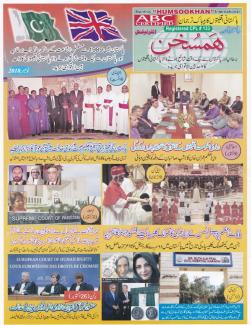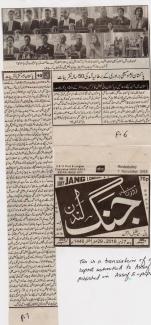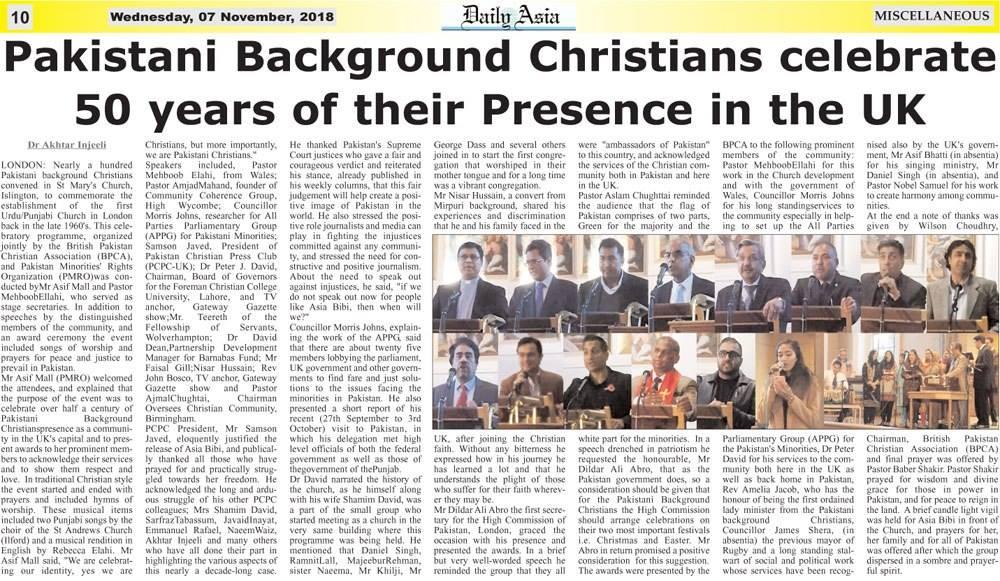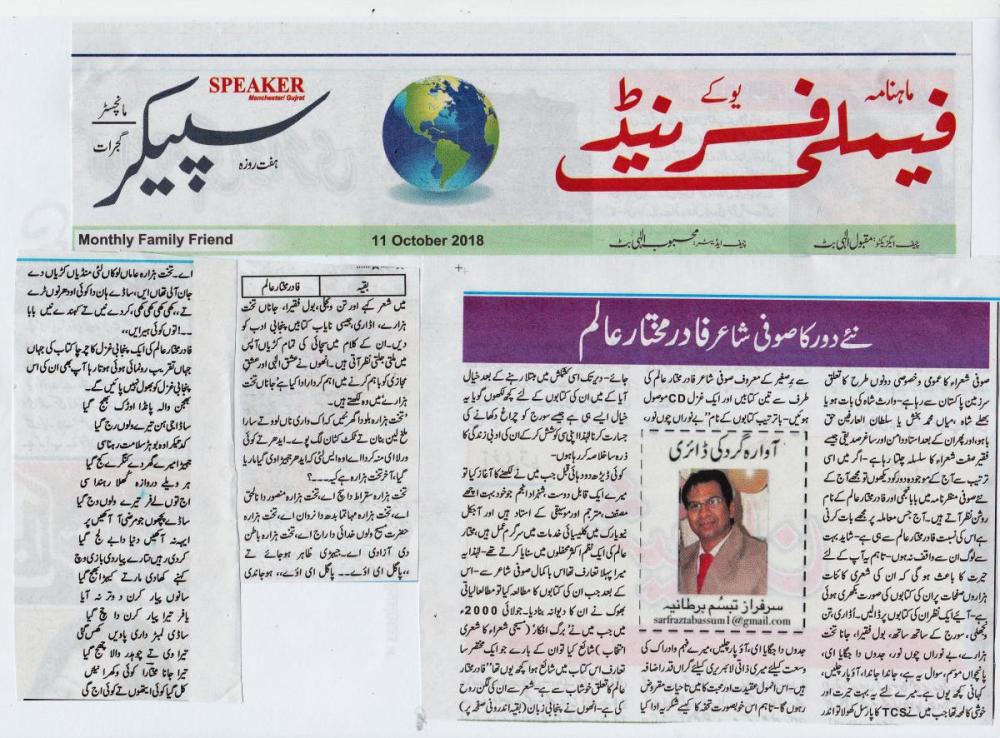IMRAN KHAN'S "HISTORICAL" BLUNDER OR JUST A SLIP OF TONGUE...
On 19th November 2018, Prime Minster Imran Khan, while inaugurating the two-day International Rahmatul-lil-Alameen Conference at Jinnah Convention Centre in Islamabad, Pakistan, delivered a ‘historic’ speech. The conference was convened to coincide with and thus enhance the celebrations of Eid Miladual Nabi, the birthday festivities of Prophet Muhammad (PBUH). YouTube and other electronic records have captured every action and word of the whole event for posterity. Despite the fact that Mr Imran Khan’s speech had a glaring blunder (subject matter at hand) it still received several resounding applauses. This may be accepted as a special perk for being Pakistan’s Prime Minster, elected or selected. During the speech, Khan Sahib came across as a committed, but somewhat an ignorant, Muslim, a devout follower of the Prophet of Islam, but one who had not read the Qura’an, and a sincere political leader albeit one with no appreciation or knowledge of history. However, in matters of the content of his speech, which obviously was not written, he did seem to have been carried away. This, in itself, is not an unusual phenomenon during such extemporaneous oratorical ventures, especially for our Khan Sahib, who still has to learn that speaking from a podium is not like swinging a bat at a ball hurled at you by any one of the world’s best fast bowlers. Public speaking is not like playing cricket!
So we begin with a very brief summary of the Prime Minsters speech which lasted for a total of 21 minutes and 38 seconds. (Full speech can be assessed on internet https://www.youtube.com/watch?v=w6XUAMWHYRw). Mr Imran Khan began with thanking various organizers and dignitaries, and then gave his personal testimony of becoming a real Muslim through the guidance of one Mian Bashir Sahib during the final phase of cricketing career. It was a powerful personal testimony of Allah’s graciousness to our then cricketing champion. Khan Sahib then expounded upon his own spiritual journey, and some deep spiritual insights. He went on to stated that ‘Welfare state is not made with resources, instead it is made with mercy, when you are worried about people’. He pointed out that Madina was the first welfare state, and that it was not made with excessive resources but with the fact that the Prophet had a heart full of mercy for people. He said that this first welfare state was established, which is part of the history. The Prime Minster, then went on say “other prophets of Allah came but, that, in the human history they have no mention. Or they have very little mention, Hazrat Musa is mentioned in history but there is no mention of Hazrat Isa in history”. The contents of this last quotation, lasting for 14.6 seconds were made into a video clip and shared on social media. Within hours the clip went viral. Reactions and started appearing on Facebook, YouTube, instagram, WhatsApp and other social messaging sites. (To watch just the 14 seconds segement that went viral click: https://www.facebook.com/sarwar.bhatti.146/videos/2390546081172682/UzpfS... ).
The Urdu speaking Christians around the world who watched and heard the clip were hurt, deeply, many became very angry, and some were infuriated. Why would a ‘knowledgeable’ man like the Prime Minister of Pakistan say something to suggest that Hazarat Isa (Jesus Christ in Christian terminology) is not mentioned in history. Immediately questions were raised, what history books, if any, did Mr Imran Khan have in mind, when he uttered these words? The facts are that Jesus Christ is one of those very few names in history that has been mentioned umpteenth number of times. Everybody seems to know this, with one notable exception that is of course Mr. Imran Khan, the Prime Minster of Pakistan. Yes, my Prime Minster!
The speech started attracting (negative) comments immediately and globally. One tweet that caught my attention read: “Was he high again or an ignorant fool?” This line really captures the issue: Khan Sahib either made his claim in ‘the heat of the moment’, or call it slip of the tongue or, just being ‘high’, or being elated at the prospect of addressing a conference full of the world’s best Islamic scholars or… Yes, or could it be that what he said was what he actually believes. Now if Khan Sahib really and sincerely believes that Jesus Christ is not mentioned in history, then he is wrong. Plain and simple! And if he sincerely believes it, then he is sincerely wrong.
A newspaper column is not an appropriate place to help educate a Prime Minster of any country, but neither is a religious conference an appropriate place to hurt religious feelings of the followers of any other religion. Mr Khan’s remarks have been heard by millions around the world. Thanks to the lightning speed at which information travels around the world these days. This nonsense of a comment has not diminished the honour of Jesus Christ one iota, but it has hurt the religious sentiments of millions of his followers. Jesus Christ, or Isa in Islam, is accepted to be the penultimate prophet of God Almighty by all Muslims I know, and is mentioned or referred to in the Qur’an more than any other person. Jesus is one of the significant figures in Islamic theology and is mentioned in the Quran 25 times by the name Isa, he is also referred to as the “Son of Mary”, and referred to many times by various other titles, attributes and references. A total count of all such mentions and references is 187 or over. So Mr Imran Khan Sahib, what history were you thinking of, when you said that, “ But that is no mention of Hazrat Isa in history? May be you were not thinking of the Quran but secular of history. Let’s have a look.
The study of the historical authenticity of an event or a person is called historicity. The historicity of Jesus Christ of Nazareth is established not only beyond any reasonable doubt, but beyond any doubt whatsoever. The matter has been settled many times over by the world’s leading researchers and scholars. The oldest mention of this historical figure Jesus Christ is found in the two of the most well respected first century historians’ works. Josephus Flavius and Publius Cornelius Tacitus mention Jesus by name. Unfortunately one of Josephus’ mentions has been allegedly tampered with, the other two haven’t. Josephus was a Jewish-Roman who lived in first century AD (c 37 – 100) was a scholar and a historian whose books Jewish Antiquities and The War of the Jews and Siege of Masada found in all respectable libraries and book stores. Jesus Christ is mentioned in Josephus’s books, if someone cares to read. Tacitus another important historian, who also lived in first contrary AD (c 56 -120, was a Roman senator, consul and a governor. His two surviving and extremely important works are, the Annals and the Histories. Mention of Jesus can be found in his works, for those who read. His books are part of the great and most respected corpus of historical knowledge.
In short, Jesus Christ is mentioned in history, if you do not find him in the history books you have, then maybe you need to get some real History Books. The problem is not that Jesus is missing in history; the issue is that for those who do not read nothing exists in the books. There is a lot of trash out there which masquerades as history. But real history is gold, it is more precious than pearls and rubies and diamonds. Real History is real, because it is about real events and real people. Khan Sahib, let’s get real. A reality check is being called for. It is bad enough when the world thinks that an average Pakistani is ill informed, but how can we as Pakistanis take the jibe: Pakistan’s Prime Minster is ill informed, (at least in the most basic matters of history!).
Other than the written history, archeology keeps spewing up the evidence of a historical Jesus. Just to mention one source, on 23 Oct 2002, Marcus Warren (New York) published an article which said, the words "James, son of Joseph, brother of Jesus" inscribed on an empty 1st century ossuary have provoked a flurry of excitement in the world of biblical archeology. The inscription on a limestone box dated AD 63, only three decades after the crucifixion. This was hailed as the first mention of the historical Jesus Christ, earlier even than the Gospels. Jesus appears is in history. (By the way, BC means Before Christ, and AD means Anno Domini, Latin for Year of our Lord, reference to Jesus Christ).
I am sure the Prime Minster is aware of the long time it took him to become a good cricketer, it has also taken him 22 years to become the Prime Minster, it will take him a long time to become a good speaker, if he did not really mean what he said, i.e. what he said was a slip of tongue, then he should come clean and say so. Just accept it, it was a mistake. On the other hand if what is said is what he really believes then I think we are in a crisis, because Pakistan has at her helm a man who is totally, and very dangerously ignorant of both history and his own religion. Jesus Christ is of course mentioned by name in both the most authoritative texts of history and religion, the Prime Minster needs to read both. I would now like to end here with one humble request to Mr Imran Khan: Honorable Prime Minster Imran Khan, please take a few moments to reflect upon the consequences if the same, or similar, words had been uttered about another prophet, by the followers of another religion, any religion, what would have been the reaction? What it the shoe was on the other foot?
(For correspondence, comments, disagreements: Injeeli@hotmail.co.uk)
© Akhtar Injeeli 03/12/2018


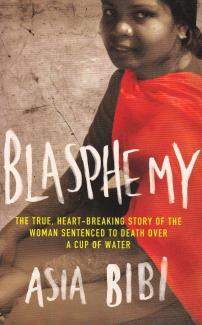 On the following day, the said verdict was printed in its entirety in both English and in Urdu newspapers, and is still available on the internet in both languages. It is a gem of a document, and is representative of the profound wisdom, highest level of legal learning, a full command of Islamic jurisprudence and clarity of expression. However, it is a long document, 56 pages in English. As I believe that most of my readers would not have had the time or the inclination to read the full document, so I summarize the salient points which became the basis of Asia Bibi’s acquittal. (The language used below is not legal, and for that the reader is encouraged to read the original document available on the internet:
On the following day, the said verdict was printed in its entirety in both English and in Urdu newspapers, and is still available on the internet in both languages. It is a gem of a document, and is representative of the profound wisdom, highest level of legal learning, a full command of Islamic jurisprudence and clarity of expression. However, it is a long document, 56 pages in English. As I believe that most of my readers would not have had the time or the inclination to read the full document, so I summarize the salient points which became the basis of Asia Bibi’s acquittal. (The language used below is not legal, and for that the reader is encouraged to read the original document available on the internet: 